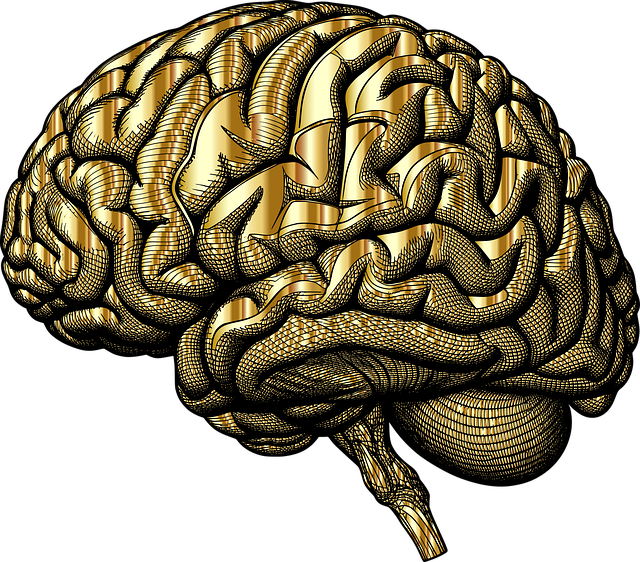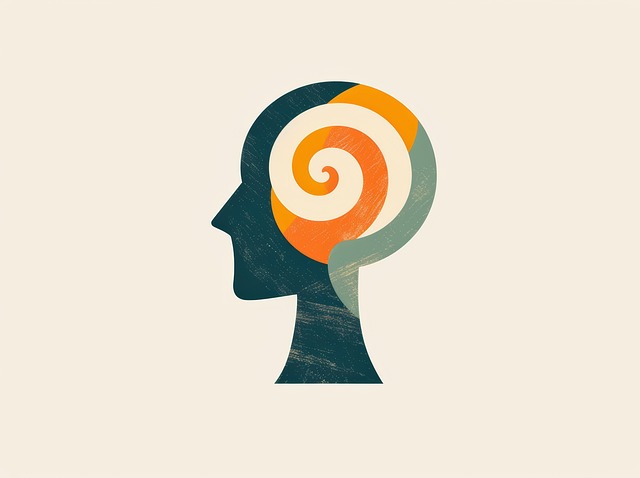Emotional intelligence (EI) is vital for young adults navigating relationships, especially in the digital age. EI therapy aids couples facing communication challenges by enhancing self-awareness and empathy, improving conflict resolution, and strengthening bonds. Techniques like active listening and journaling exercises promote healthy social interactions. Effective communication, a key aspect of EI, impacts overall well-being. Professional help, such as therapy for young adults or couples' counseling, encourages open dialogue, teaches emotional expression, and incorporates stress management tools. Self-awareness exercises and workshops equip individuals with skills to recognize and manage emotions, fostering stronger relationships and mental health. Tailored therapy using Mind Over Matter principles and Trauma Support Services revolutionizes communication between partners, leading to increased intimacy. CBT and compassion cultivation practices further help overcome complex communication issues, reducing conflicts and enhancing EI.
Emotional intelligence (EI) is a powerful tool for building healthy, fulfilling relationships. This article delves into the key role EI plays in fostering connection and well-being. We explore the impact of communication on emotional health, offering insights into identifying and managing emotions effectively. For couples, we provide strategies to enhance intimacy and overcome challenges. Additionally, we discuss therapeutic approaches tailored to address communication issues in young adult relationships, emphasizing the importance of professional support for lasting change.
- Understanding Emotional Intelligence: A Key to Healthy Relationships
- The Impact of Communication on Emotional Well-being
- Identifying and Managing Emotions Effectively
- Strategies for Couples to Enhance Connection and Intimacy
- Therapeutic Approaches to Overcome Communication Issues in Young Adult Relationships
Understanding Emotional Intelligence: A Key to Healthy Relationships

Emotional intelligence (EI) is a vital skill that plays a crucial role in fostering healthy relationships, especially for young adults navigating complex personal interactions. It involves recognizing and managing one’s own emotions, as well as understanding and empathizing with others’ feelings. In today’s world, where social connections are often shaped by digital interfaces, cultivating EI can be a game-changer for building meaningful relationships.
For couples dealing with communication issues, EI serves as a powerful tool. Effective communication is built on emotional awareness and empathy, allowing partners to understand each other’s perspectives and needs. Therapy for young adults focusing on EI development can provide strategies for improving self-awareness and empathy, which are fundamental to resolving conflicts and strengthening bonds. This approach extends beyond couples; it is beneficial in various relationships, from friendships to professional networks. By prioritizing emotional intelligence, individuals can enhance their ability to connect, collaborate, and support one another, ultimately contributing to improved mental wellness. Empathy building strategies, such as active listening and self-reflection, along with Mental Wellness Journaling Exercise Guidance, can empower people to navigate social interactions with greater sensitivity and care.
The Impact of Communication on Emotional Well-being

Effective communication is a cornerstone of emotional intelligence, playing a pivotal role in our overall well-being. For young adults navigating complex relationships and personal growth, it’s particularly significant. When couples or individuals struggle with communication issues, it can lead to misunderstandings, heightened emotions, and even relationship strain. This is where seeking professional help, such as therapy for young adults or couples’ counseling, becomes valuable. Such platforms encourage open dialogue, teaching participants how to express their feelings, needs, and boundaries in a constructive manner.
Incorporating conflict resolution techniques and compassion cultivation practices into communication can transform interactions. Stress management workshops organized by various organizations also equip individuals with tools to handle emotional challenges that may arise during conversations. By fostering healthier communication patterns, these initiatives contribute to improved mental health and stronger interpersonal connections.
Identifying and Managing Emotions Effectively

Identifying and managing emotions effectively is a cornerstone of emotional intelligence development, especially for young adults navigating complex relationships. Many struggle with communicating their feelings openly, often due to past experiences or unaddressed therapy for couples facing communication issues. This can lead to misunderstandings and conflicts that impact personal and professional life.
Self-awareness exercises play a pivotal role in this process, encouraging individuals to recognize their emotional triggers and patterns. By fostering self-care practices and attending stress management workshops, young adults gain valuable tools to navigate intense emotions healthily. These initiatives promote better organization of thoughts and feelings, leading to more productive communication both within themselves and with others, thereby strengthening relationships and overall well-being.
Strategies for Couples to Enhance Connection and Intimacy

Many couples struggle with communication issues, which can hinder emotional intimacy and connection. Enhancing these aspects is crucial for a healthy relationship. One effective strategy involves seeking therapy tailored for young adults, where professionals can guide them through Mind Over Matter Principles to improve their communication skills. This process encourages partners to understand each other’s perspectives and emotions, fostering a deeper sense of closeness.
In addition, Trauma Support Services can play a significant role in addressing any underlying issues that might be affecting their relationship. By providing Crisis Intervention Guidance, these services help couples navigate through difficult conversations, ensuring they feel heard, validated, and supported. Together, these approaches can revolutionize the way partners interact, ultimately leading to stronger bonds and increased intimacy.
Therapeutic Approaches to Overcome Communication Issues in Young Adult Relationships

Many young adults find themselves navigating complex communication issues within their relationships, which can lead to emotional distress and a sense of isolation. Therapeutic approaches play a pivotal role in helping them overcome these challenges. One effective method is cognitive-behavioral therapy (CBT), which focuses on identifying and changing negative thought patterns and behaviors hindering open dialogue. CBT equips individuals with communication strategies, enabling them to express their needs and emotions more effectively, thereby fostering healthier relationships.
Additionally, compassion cultivation practices have proven beneficial in these contexts. Mindfulness techniques and empathy-building exercises encourage young adults to understand and validate each other’s feelings, reducing conflicts and promoting emotional intelligence. By incorporating these therapeutic tools, couples can address underlying issues, prevent burnout, and enhance their overall relationship satisfaction.
Emotional intelligence is a powerful tool for cultivating healthy relationships, especially among young adults navigating communication issues. By understanding and managing emotions effectively, couples can enhance their connection and intimacy. The strategies outlined in this article, including therapeutic approaches tailored to young adult relationships, provide practical ways to improve communication and overcome challenges. Investing in emotional intelligence building through therapy or personal growth initiatives ensures a more robust and fulfilling interpersonal experience for all involved.









